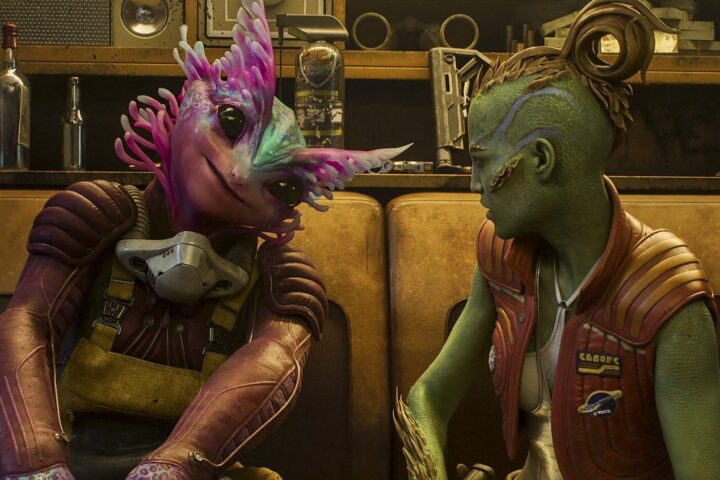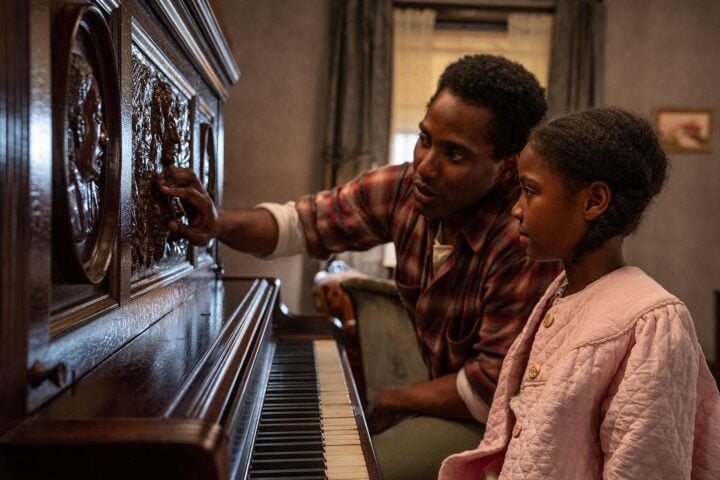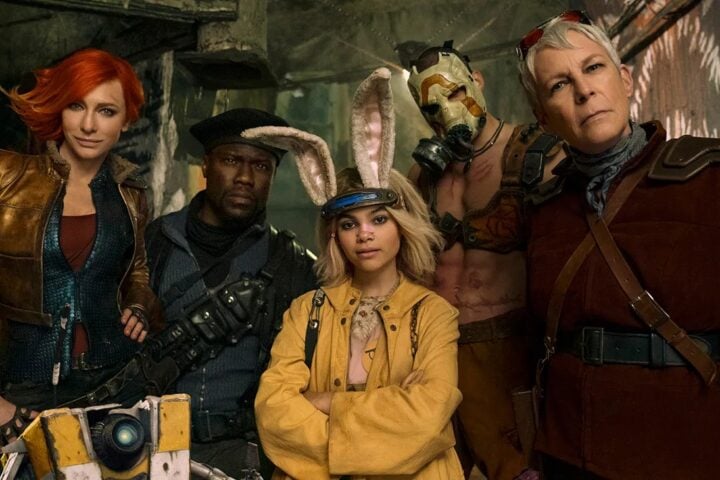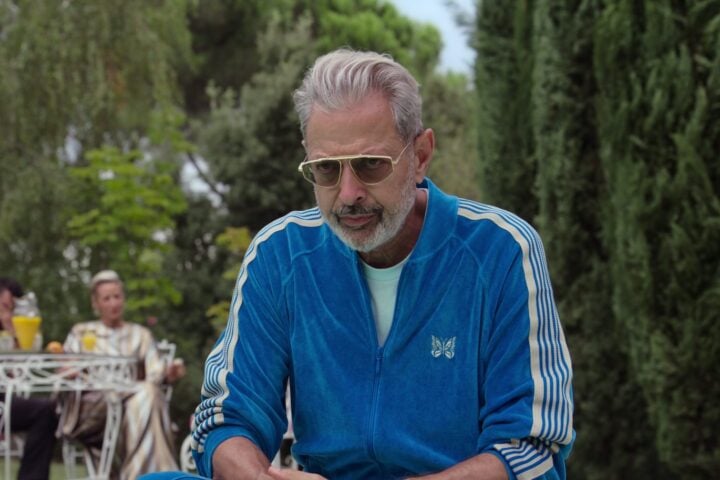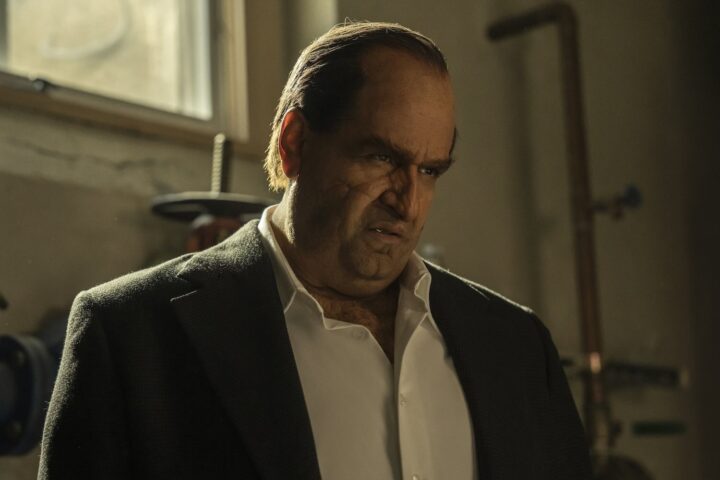A scripted adaptation of Jeff Keating and Jim Roberts’s iHeart podcast Fight Night, Peacock’s Fight Night: The Million Dollar Heist begins in Atlanta on the night of October 26, 1970, as Muhammed Ali (Dexter Darden) makes his return to the ring following a three-year suspension. A local hustler known as the Chicken Man (Kevin Hart) decides to throw a glitzy post-fight party for some of the country’s most prestigious crime lords, hoping that this event might prove to be his big break. But when a group of masked gunmen barge through the door, this new beginning looks like it might turn into an untimely end.
Concluding just as the robbers arrive on the scene, the first episode of The Million Dollar Heist makes for a slick little crime story. The eight-episode miniseries relishes the chance to recreate its setting, imagining ’70s Atlanta as a sea of brightly colored suits and perfectly rounded Afros, all set to a smooth soul soundtrack. It draws on some of the same Blaxploitation-era techniques that The Big Cigar, Apple TV’s miniseries about Black Panther Party founder Huey Newton, employed earlier this year but The Million Dollar Heist uses them much more effectively, like the split-screen sequences which give a jolt of extra visual energy to the robbery scene.
The key to the show’s effectiveness is that it uses the night in question not just as the instigating event in the Chicken Man’s tale, but as a kind of dramatic epicenter, the shockwaves that emanate out from it across Atlanta and beyond. The series follows the police officer, Detective JD Hudson (Don Cheadle), tasked with tracking the robbers down as he tries to do honest work within a begrudgingly integrated force that’s still openly hostile to his existence.
The Million Dollar Heist traces the ripples of the robbery through the criminal world as kingpins like the “Black Godfather” Frank Moten (Samuel L. Jackson) and his primly permed right-hand man, Richard “Cadillac” Wheeler (Terrence Howard), prepare to deal out some justice of their own. And we eventually catch up with the robbers and learn how they came to find themselves picking the pockets of America’s most dangerous men.
Our introduction to Moten is reminiscent of Pulp Fiction, with Jackson brandishing a gun while bellowing out a quasi-religious speech. Meanwhile, Hart pushes boldly into new territory for himself, burying some of his manic energy beneath a huskier voice, a world-weary frown, and a salt-and-pepper beard. It’s a performance that evokes real pathos, inverting his madcap comic persona just as Jim Carrey and Robin Williams famously did in their dramatic turns in such films as Eternal Sunshine of the Spotless Mind and Good Will Hunting, respectively.
In the show’s early episodes, Darden’s performance as Ali feels a little like an impersonation, but he settles into the role over time, especially during the thoughtful, thorny scenes he shares with Cheadle. Later in the series, Hudson strikes up a winning, buddy-cop rapport with the Chicken Man, and when he finally gets to sit across the table from Jackson, it proves to be a scintillating cop-versus-criminal showdown between two heavyweights of the screen.
These inspired pairings help The Million Dollar Heist to turn the podcast’s strange true-crime tale into a compelling character drama that also effectively explores the wider-ranging cultural ramifications of its story. The Ali-Quarry fight brought racial and political tensions in the U.S. to a head, occurring at a time when Ali was both a Black icon and a nationally reviled figure, and the series skillfully uses this one criminal case from 50-odd years ago to explore a critical moment in America’s history through a very wide-reaching lens.
Since 2001, we've brought you uncompromising, candid takes on the world of film, music, television, video games, theater, and more. Independently owned and operated publications like Slant have been hit hard in recent years, but we’re committed to keeping our content free and accessible—meaning no paywalls or fees.
If you like what we do, please consider subscribing to our Patreon or making a donation.


